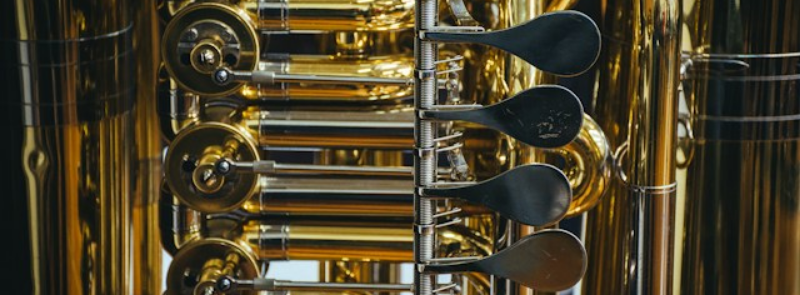
When It Occurs
Annually First Friday of May
Official Website
Timeline
Days Passed (660)
# Hashtags
#InternationalTubaDay #Oompah
Every first Friday of May, we observe International Tuba Day, a yearly celebration dedicated to the notable heavy instrument prominently featured in marching bands – the Tuba. Often perceived as a large brass instrument producing the distinctive "oompah" sound in parades and bands, the Tuba holds more significance than meets the ear.
Regrettably, the Tuba has been misjudged as a mere loud instrument, played by individuals lacking musical talent and personality. However, the Tuba goes beyond the stereotypical "oompah" sound and carries substantial musical importance. International Tuba Day is established with the purpose of honoring the Tuba and recognizing the often-overlooked and underappreciated tuba players.
History:
- Inception: International Tuba Day was founded in 1979 by Joel Day, a tuba player from Lower Moreland High School in Pennsylvania, USA. Joel created the day to address the lack of recognition tuba players received and to highlight their significance in musical groups.
- First Observance: The first International Tuba Day was celebrated in 1979.
Key Objectives:
- Raise Awareness: Educate the public about the tuba's role in music and its importance in various musical settings.
- Celebrate Tuba Players: Honor and appreciate the efforts and talents of tuba players who contribute to the richness of musical performances.
- Promote the Tuba: Encourage the study and playing of the tuba, and support young musicians who are learning the instrument.
- Foster Musical Appreciation: Enhance the appreciation of brass instruments and their unique contributions to music.
The Tuba in Music:
- History: The tuba, the largest and lowest-pitched brass instrument, was invented in the mid-19th century. It has since become a staple in orchestras, concert bands, brass ensembles, and various other musical groups.
- Role in Ensembles: In orchestras and bands, the tuba provides the bass foundation, supporting harmony and adding depth to the music. It is essential in creating a full, rich sound.
- Versatility: The tuba is used in classical music, jazz, military bands, and even some modern genres, showcasing its versatility and adaptability.
Activities and Celebrations:
- Concerts and Performances: Many communities, schools, and music organizations host special concerts and performances featuring tuba players and brass ensembles to celebrate the day.
- Workshops and Clinics: Educational workshops and clinics for tuba players of all skill levels are organized to provide learning opportunities and promote the instrument.
- Social Media Campaigns: Musicians and enthusiasts share videos, photos, and stories about the tuba and tuba players on social media using hashtags like #InternationalTubaDay.
- Competitions and Recitals: Tuba competitions and recitals are held to showcase the talents of tuba players and to encourage young musicians.
- Recognition and Awards: Schools and music organizations may recognize outstanding tuba players with awards and certificates to honor their contributions.
Impact:
- Increased Awareness: International Tuba Day has successfully raised awareness about the tuba and its significance in music, helping to dispel stereotypes and misconceptions about the instrument.
- Support for Tuba Players: The day has provided a platform for tuba players to be recognized and appreciated, fostering a sense of pride and community among musicians.
- Promotion of Music Education: By highlighting the tuba, International Tuba Day promotes music education and encourages more students to take up the instrument.
Famous Tuba Players:
- William Bell: An influential American tuba player and teacher, known for his work with the New York Philharmonic and the NBC Symphony Orchestra.
- Arnold Jacobs: Renowned for his long tenure with the Chicago Symphony Orchestra and his contributions to brass pedagogy.
- Roger Bobo: A celebrated tuba soloist and former member of the Los Angeles Philharmonic, known for his solo performances and recordings.
How to Get Involved:
- Attend a Concert: Support tuba players by attending concerts and performances that feature the tuba.
- Learn About the Tuba: Take the time to learn about the history, role, and capabilities of the tuba in various musical genres.
- Share on Social Media: Use social media platforms to share content related to the tuba and International Tuba Day, helping to spread awareness.
- Encourage Young Musicians: Support and encourage young musicians who are learning to play the tuba, whether through mentorship, attending their performances, or providing resources.
- Celebrate Local Tuba Players: Recognize and celebrate the contributions of local tuba players in your community, schools, and musical groups.
By celebrating International Tuba Day, we acknowledge the important role of tuba players in enriching the musical landscape and encourage greater appreciation for this powerful and versatile instrument.


